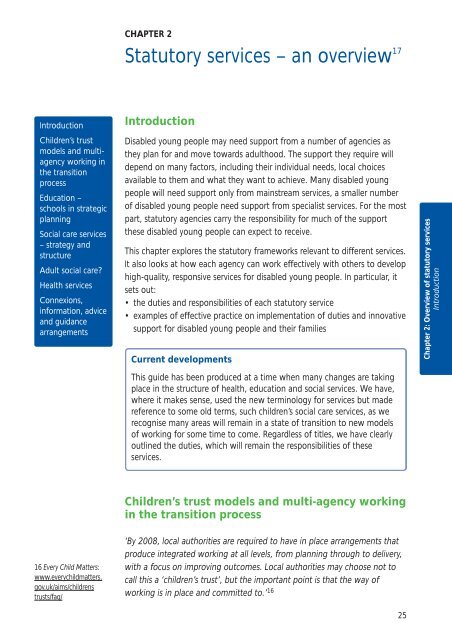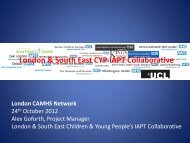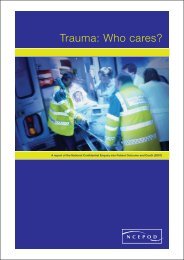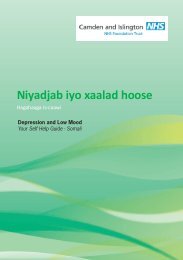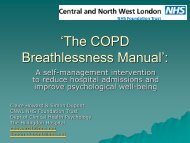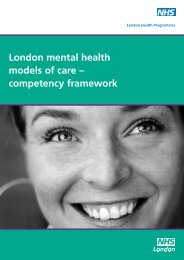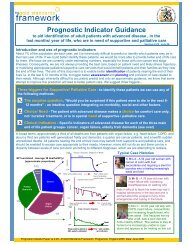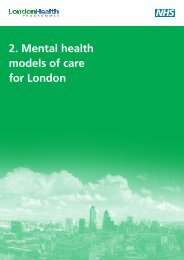A Transition Guide for All Services - Transition Information Network
A Transition Guide for All Services - Transition Information Network
A Transition Guide for All Services - Transition Information Network
- No tags were found...
Create successful ePaper yourself
Turn your PDF publications into a flip-book with our unique Google optimized e-Paper software.
CHAPTER 2Statutory services – an overview 17IntroductionChildren’s trustmodels and multiagencyworking inthe transitionprocessEducation –schools in strategicplanningSocial care services– strategy andstructureAdult social care?Health servicesConnexions,in<strong>for</strong>mation, adviceand guidancearrangementsIntroductionDisabled young people may need support from a number of agencies asthey plan <strong>for</strong> and move towards adulthood. The support they require willdepend on many factors, including their individual needs, local choicesavailable to them and what they want to achieve. Many disabled youngpeople will need support only from mainstream services, a smaller numberof disabled young people need support from specialist services. For the mostpart, statutory agencies carry the responsibility <strong>for</strong> much of the supportthese disabled young people can expect to receive.This chapter explores the statutory frameworks relevant to different services.It also looks at how each agency can work effectively with others to develophigh-quality, responsive services <strong>for</strong> disabled young people. In particular, itsets out:• the duties and responsibilities of each statutory service• examples of effective practice on implementation of duties and innovativesupport <strong>for</strong> disabled young people and their familiesCurrent developmentsChapter 2: Overview of statutory servicesIntroductionThis guide has been produced at a time when many changes are takingplace in the structure of health, education and social services. We have,where it makes sense, used the new terminology <strong>for</strong> services but madereference to some old terms, such children’s social care services, as werecognise many areas will remain in a state of transition to new modelsof working <strong>for</strong> some time to come. Regardless of titles, we have clearlyoutlined the duties, which will remain the responsibilities of theseservices.Children’s trust models and multi-agency workingin the transition process16 Every Child Matters:www.everychildmatters.gov.uk/aims/childrenstrusts/faq/‘By 2008, local authorities are required to have in place arrangements thatproduce integrated working at all levels, from planning through to delivery,with a focus on improving outcomes. Local authorities may choose not tocall this a ‘children’s trust’, but the important point is that the way ofworking is in place and committed to.’ 1625


